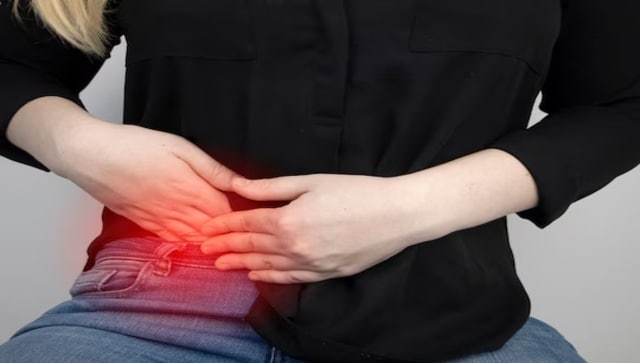Your appendix isn’t that vestigial, it can increase your chances of developing Parkinson’s disease

Representational image. News18
A vestigial organ — an organ that apparently is of no use — though it is, your appendix can still put you at an elevated risk of developing Parkinson’s disease, a new study has found.
Around 25,000 patients with Parkinson’s were studied and compared to healthy subjects at the Mayo Clinic in the US to see if gut problems played any role in increasing the risk of the disease. Besides discovering a link between gut problems like constipation, and irritable bowel syndrome with the disease, it was found that those who had their appendix removed were 52 percent less likely to have Parkinson’s later in their lives.
“An interesting side point of the study is the seemingly protective association of appendectomy with Parkinson’s disease, implying in addition that the appendix might be the origin of the pathological insult that then spreads throughout the gut and ultimately to the brain,” Dr Tim Bartels, group leader at the UK Dementia Research Institute at University College London, commented on the study findings.
Related Articles

‘Game-changer’: Tests using cerebrospinal fluid samples can help in early diagnosis of Parkinson’s disease, says study

Parkinson’s linked to a harmful protein, shown to originate in the gut decades before diagnosis
“Since the latter association was within the range of potential surveillance bias, this has to be further validated, however,” he added.
Appendix, a four-inch worm-shaped tube attached to the large intestine, has remained a mystery, so far. Those who’ve had it removed lead healthy lives. While some scientists argue that the appendix is an evolutionary remnant from our herbivorous ancestors, who needed more help for digestion, there are some who opine that it is important for the immune system, perhaps, as a store for healthy bacteria released in the gut after an infection.
However, the new study suggests that the appendix may be the source of a misfolded protein called alpha-synuclein. This protein is connected to Parkinson’s. This can move to the central nervous system from the appendix.
The problems in the brain start in the abdomen
Scientists hypothesise that neurological problems may originate in the intestines.
In the new study, the health record of Parkinson’s patients was compared to those of the same age, sex, and ethnicity. The frequency of gut infection in their electronic health record for an average of five years before their diagnosis was studied to see any relation.
Besides this, those with gut conditions were also checked on to see if they developed Parkinson’s.
Gut conditions and their risk effect on chances to develop Parkinson’s
The study found that Gastroparesis (delayed stomach emptying), dysphagia (difficulty swallowing), and constipation were linked to doubling the risk of Parkinson’s in five years before the diagnosis and irritable bowel syndrome was linked to a 17 per cent higher risk.
Besides these gut conditions, functional dyspepsia (burning sensation or fullness of stomach with no obvious cause), irritable bowel syndrome with diarrhoea, and diarrhoea with faecal incontinence were more prevalent in those who developed Parkinson’s.
This has led the experts to suggest that gut conditions may provide important early warning signs of neurological problems.
For all the latest health News Click Here

